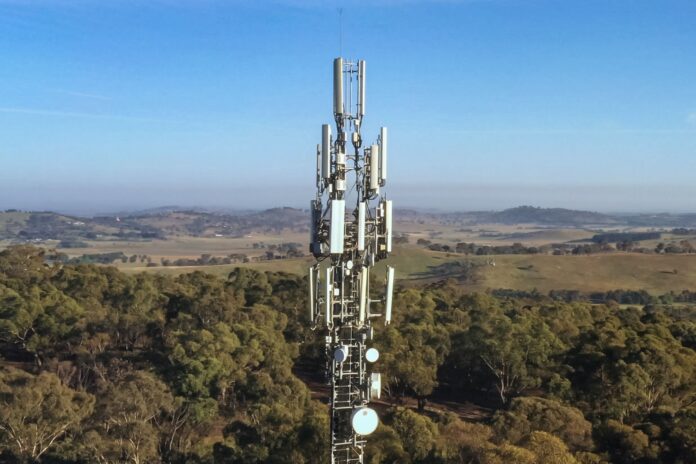A leading economic development group is urging Sunshine Coast Council to fast-track mobile telecommunications infrastructure, citing widespread reception problems across the region.
The call from the Regional Development Australia Moreton Bay Sunshine Coast (RDAMBSC) comes as the council seeks community feedback on its new planning scheme, which will replace the 2014 framework.
In response, the council said telcos had a responsibility to work with communities to obtain a “social licence” for network improvements.
Gavin Keeley, the chair of RDAMBSC – one of 50 Regional Development Australia organisations funded by the federal government around the nation – said stakeholders had often raised frustrations over mobile reception.
He said a lack of mobile towers in the area meant users were hitting “grey spots” – when phones show full reception yet are unable to get a line out or access the internet because of congestion in local towers.
“We need change because we have a huge surge in the local population in recent years yet weʼre not seeing planning consent for mobile telecommunications infrastructure,” he said.
“Cases just canʼt be decided on visual impact and the use of coverage maps to justify rejection, because these maps take no account of congestion.
Related story: Telco takes council to court over phone tower plan
“Congestion can mean people cannot make phone calls at a time when there may be an emergency.
“Mobile telecommunications must be considered as an essential utility in region, just like the three waters (drinking, stormwater and sewerage), electricity and fixed-line telecommunications.”

Mr Keeley encouraged people to lodge their thoughts with the council before Friday, when it closes off public consultation over the planning scheme.
A council spokesperson said it aimed to balance the region’s growing demand for reliable telecommunications with community and environmental considerations.
“Sunshine Coast Council recognises the need for high-quality telecommunications infrastructure to service the Sunshine Coast as a growing region,” they said.
“The way the proposed planning scheme is proposing to regulate telecommunication facilities is consistent with many other planning schemes already operating in Queensland and in this context is not new or unusual.
“Council works closely with telecommunication providers to support network improvements but notes that providers also have an obligation to work with communities to establish a social licence for improvements to their networks.”
Do you have an opinion to share? Submit a Letter to the Editor at Sunshine Coast News via news@sunshinecoastnews.com.au. You must include your name and suburb.
Mr Keeley said RDAMBSC wanted the council to consider a telecommunications master plan that could identify the location for new infrastructure in line with residential and commercial development.
He said the federal government’s Telecommunications in New Developments policy urged consideration for telecommunications infrastructure for “all new housing developments of 50 house lots or more … during planning processes”.
The federal government has said that “a significant number of new communities have reported inadequate, or no, mobile coverage when moving into their new homes, and this can remain the case for years”.
Mr Keeley said other Queensland local government areas had been proactive in approvals for telecommunications infrastructure, including allowing towers in industrial zones that were away from residential areas.
“The telecommunications providers arenʼt asking to be able to do whatever they want, but they do need approvals to ensure they can deploy a working network to meet the current and future needs of the local community,” he said.
“Itʼs important that the Sunshine Coast and Noosa take advantage of the planning scheme feedback process to let council know of the issues.”
Earlier this year, the Telecommunications Industry Ombudsman announced that the Sunshine Coast was among the top five regions in the nation for the most phone complaints.
Click here to view the proposed planning scheme. RDAMBSC has a toolkit on the scheme available here.





